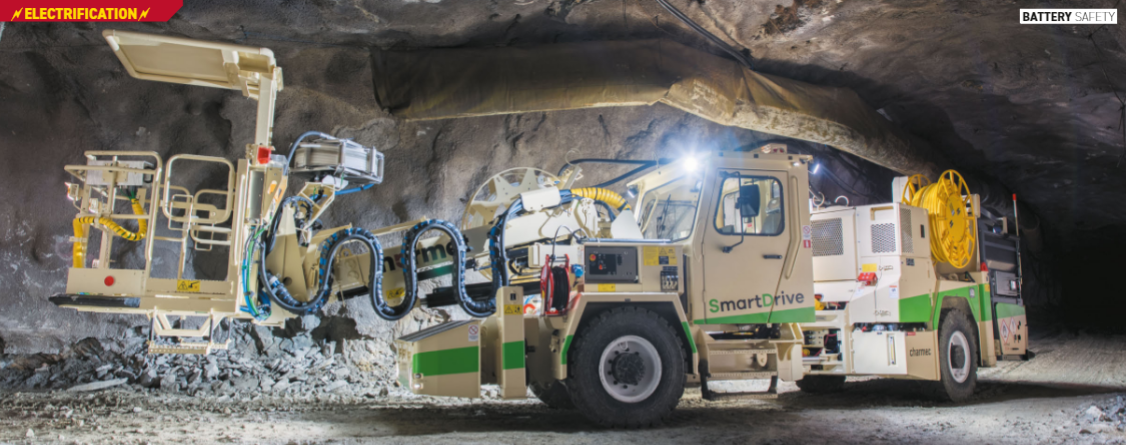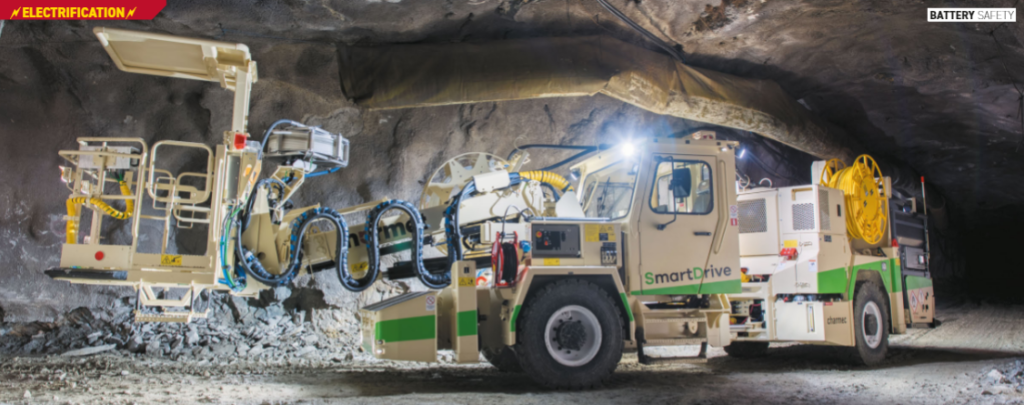

Battery Electric Vehicle – Fire Safety Management
The relatively recent introduction of battery electric vehicles (BEV) to the tunnelling and mining industries have shown there to be positive benefits in reducing embodied carbon through reduction of fossil fuel use, but also significant operational benefits of enhanced safety in operation, reduced whole life equipment cost of ownership, but also project costs.
As typically experienced with step changes in technology, despite all the positive attributes for the increased introduction of BEV underground equipment, there are nevertheless legitimate end user concerns over the safety of high-capacity batteries, and in particular, their fire safety in confined underground working environments. The fire safety concerns focus on the following (perhaps unfounded) beliefs that are compounded by isolated media/news stories of personal mobile device batteries and occasional bus and electric car fire incidents that have been reported:
In addition to these fire safety topics, BEVs are rumoured to interfere with the modern detonator systems for rock blasting in tunnels and mines.
The SubSpace Energy Hub workstream will address these safety concerns for BEV tunnelling and mining equipment. The workstream will address these issues through a risk assessment approach but it includes several addition activities, such as compilation of best practice, state of the art and available guidelines and codes, insight into r&d work and reports, forming academia and industry r&d teams to carry out applied research on specific topics etc .
The SSEH team will initiate the project through an invited industry workshop hosted at Hagerbach, Switzerland, and with additional attendance online. The team will encourage international participation from scheme owners, BEV and battery pack supply chain, tunnel contractors, mining organisations, insurance companies and fire departments etc. The workshop will establish the key risks and potential management approaches to be developed for the industry to be factually informed to ensure implementation of the best practice safety regimes with the appropriate checks and balances. The intended outcome should at one side demonstrate that the safety of BEVs is not inferior to current ICE driven vehicles, and on the other side help to identify additional r&d needs and support the formation of teams which will investigate such topics.
SSEH anticipate the following risk management cases being developed covering fire safety: